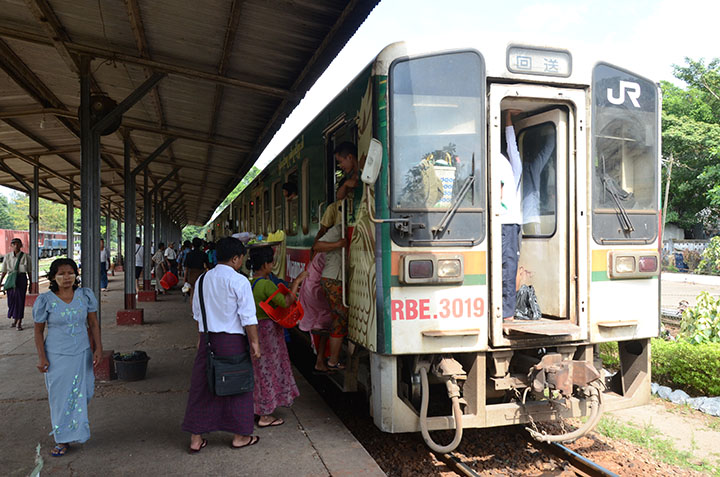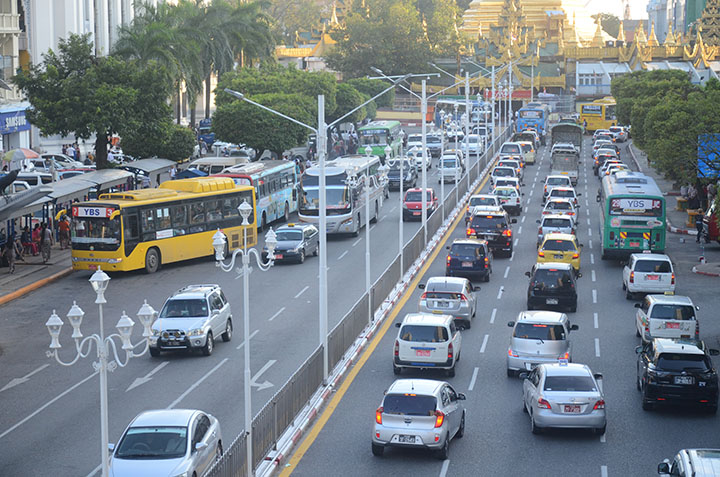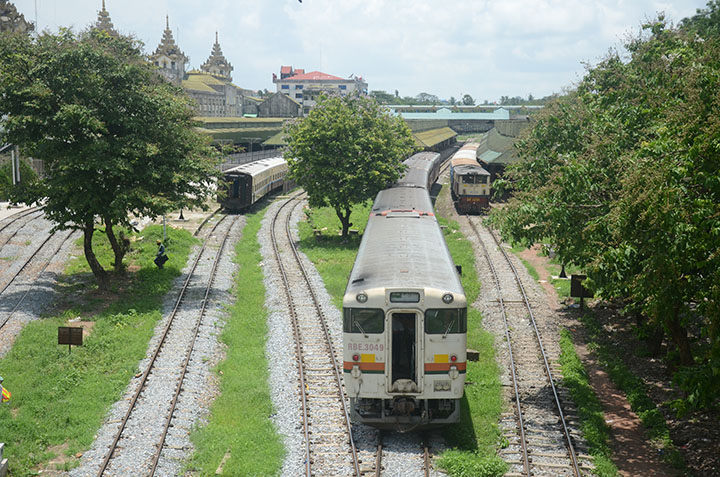By Hillary Yu Zin Htoon
Yangon is a city rich with history—a former capital, a center of commerce, and today, a city bristling with construction cranes, clogged with vehicles, and throbbing with the aspirations of its swelling population. Demographic changes, economic growth, and Myanmar’s new international openness have left the Yangon City Development Committee, the city’s municipal government, scrambling to deliver public services and provide effective governance for a population of almost six million.

After decades of international isolation and government secrecy that left a lasting deficit in public trust and participation, the local governments of Myanmar’s major cities have begun to recognize that effective governance is built on communication between a city’s leaders and its citizens. Quite simply, governments cannot serve the governed if they don’t know what’s going on. Elected officials, who must provide effective public services with limited resources, are awakening to the information value of public participation. The Development Affairs Organization of Taunggyi, a city in Southern Shan State, and the mayor of Mandalay City, for example, have been actively corresponding with city residents on Facebook. In Yangon’s recent election debates, one candidate proclaimed that citizens would be able to call him personally to register complaints.

As a citizen of Yangon City, I understand the importance of this public dialogue. Government decisions on routine matters such as public transit, waste collection, deteriorating air quality, the proliferation of concrete high-rises, or the growing intensity of traffic jams affect the well-being of every resident of this city every day. But while openness to public opinion is an important step for an emerging democracy, anecdotal information from Facebook posts and phone calls from dissatisfied citizens can be treacherously unreliable, amplifying the voices of a motivated, but not necessarily representative, few. Clearly, the first step in responsive, democratic policymaking—understanding the will of the people—is a tall one.
This is why my team at The Asia Foundation, Myanmar, has developed the City Life Survey (CLS), a modern data tool for democratic policymaking by urban decision-makers.
Launched as a pilot in 2017, CLS is a multiyear, multicity, public-perception survey designed to provide reliable information about the lives and concerns of Myanmar’s urban residents. A sample of 2,400 respondents answered 135 questions encompassing their social, economic, and physical well-being and their opinions on urban problems. The substantial sample size and formal survey methodology assure that results represent an accurate cross-section of the urban population, from prosperous residents of city centers to recently arrived migrants on the outskirts.
The survey yielded a variety of practical information for improving the responsiveness of local government. It showed, for example, that if the citizens of Yangon could choose how to spend public funds, they would put most into roads, drainage, and garbage collection. My own, highly unscientific survey, in the form of informal conversations with multiple citizens at municipal election debates, agrees with these findings.
In another interesting result, more than half of CLS respondents revealed that they do not clearly understand what their municipal government is responsible for or how it pays for its operations. This government opacity has sown mistrust, fostered suspicions of corruption, and created a destructive mismatch between government operations and public expectations. I used to be one of these residents. I would see workers filling potholes or clearing drains, yet I never understood why these roads were mended while those on another side of the city were not. The insight from CLS that this incomprehension is widespread should be a call to action to municipal governments to increase public outreach and transparency.
On a positive note, the survey found high levels of social trust among urban residents, with 48 percent saying that the people in their city are trustworthy. Social engagement is also very high, with a whopping 92 percent donating to a charitable cause and 60 percent volunteering their time every few months. This reservoir of social capital will be a valuable source of public support for local governments as the seek to rationalize vital public functions such as the tax system.
Even with good will and a commitment to serving the public, identifying and prioritizing urban issues is complex. As CLS continues to collect data and expands to include additional cities, policymakers across Myanmar will be able to hear clearly the voice of the urban public as a community. We hope that CLS will spark a demand for more reliable data, systematic research and analysis, healthy competition among cities, and better-informed urban policymaking.
Hillary Yu Zin Htoon is a program officer for The Asia Foundation in Myanmar. She can be reached at [email protected] survey in both languages can be available at: https://asiafoundation.org/publication/city-life-survey-2018/


